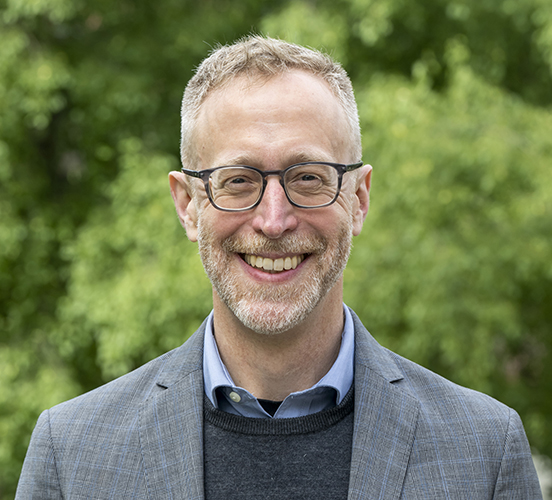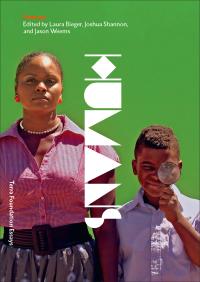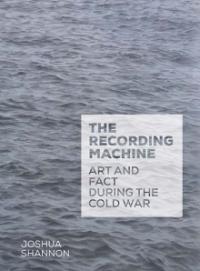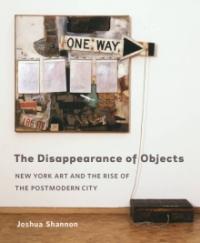Joshua Shannon

Professor, Contemporary Art History & Theory, and Director of Graduate Studies, Art History and Archaeology
shannon1@umd.edu
4204 Parren J. Mitchell Art-Sociology Building
Get Directions
Education
Ph.D., , University of California, Berkeley
Research Expertise
Critical Theory
Environmental Art
Modern and Contemporary
Photography
The Americas
Visual Culture
Joshua Shannon is an art historian specializing in modern and contemporary visual art, photography, and architecture. His publications and teaching focus on art’s relationships to social and cultural history since the Cold War period, with special interests in ecology, landscape, and cities.
Professor Shannon is currently writing a book called How and Why to Look at Art in the Time of Climate Change: Seven Lessons from Modern Art (under contract, University of California Press). Beginning from the observation that the climate crisis demands not only technical solutions but also the unlearning of some of our most basic beliefs, the book shows how the innovations of modern art can help human beings to conceive a sustainable civilization.
Shannon's 2021 book, Humans, (co-edited with Jason Weems and Laura Bieger, Terra Foundation/University of Chicago Press) offers a critical history of the concept of the human being in U.S. art and culture from the colonial period to the present. The introduction provides an overview and a manifesto for today.
Shannon’s 2017 book, The Recording Machine: Art and Fact During the Cold War (Yale University Press) offers a new understanding of the transformation of the visual arts around 1968. Uncovering a stringent realism in the period’s art, this book traces many artists’ rejection of essential truths in favor of mere facts and surface appearances. Dubbing this tendency factualism, Professor Shannon illuminates its relationship to the Cold War’s preoccupation with data as well as the longer rise of a pervasive culture of fact. The book focuses on the United States and West Germany, closely reading works ranging from conceptual photography and earthworks to photorealist painting and abstraction. The Recording Machine is the winner of a Terra Foundation for American Art International Publication Grant. (An excerpt from the book is available here).
Shannon's first book, The Disappearance of Objects: New York Art and the Rise of the Postmodern City (Yale University Press, 2009) considers how art in New York understood the transformation of the economy and of everyday life around 1960. Its chapters focus, respectively, on art by Claes Oldenburg, Jasper Johns, Robert Rauschenberg, and Donald Judd. A finalist for the book prize of the Phillips Collection's Center for the Study of Modern Art, the book also won a Wyeth Foundation Publication Grant from the College Art Association. (Excerpts from reviews are available at the publisher's website.)
Professor Shannon has published essays and reviews in American Art, The Art Bulletin, The Journal of Modern Craft, Modernism/Modernity, October, and Raritan, as well as in major exhibition catalogues and edited volumes. He has lectured widely in the United States and Europe. In 2007, he co-founded both the Society of Contemporary Art Historians and Contemporary Art Think Tank, and he served in the leadership of both organizations until 2012. From 2012-2019, Shannon directed the Potomac Center for the Study of Modernity , an interdisciplinary and inter-institutional research initiative hosting scholarly symposia in Washington, DC. In addition to other awards, Shannon has held the Terra Visiting Professorship at the Freie Universität Berlin (twice), a guest Professorship at the University of Hong Kong, and the Andrew W. Mellon Postdoctoral Research Fellowship at the University of Michigan.
Professor Shannon's teaching is informed by deep concerns over sustainability and justice, by critical theory, by social and cultural history, and by the practice of close looking. Topics of his current and recent courses include art and climate change, modernist architecture, photography, and concepts of the human being in contemporary art.
Publications
Humans
"Humans" delves into how American art has represented and shaped evolving concepts of the human being, from the colonial period to today.
Contributor(s): Joshua Shannon
Surveys the representations and constructions of the human being in American art.
Humans are organisms, but “the human being” is a term referring to a complicated, self-contradictory, and historically evolving set of concepts and practices. Humans explores competing versions, constructs, and ideas of the human being that have figured prominently in the arts of the United States. These essays consider a range of artworks from the colonial period to the present, examining how they have reflected, shaped, and modeled ideas of the human in American culture and politics. The book addresses to what extent artworks have conferred more humanity on some human beings than others, how art has shaped ideas about the relationships between humans and other beings and things, and in what ways different artistic constructions of the human being evolved, clashed, and intermingled over the course of American history. Humans both tells the history of a concept foundational to US civilization and proposes new means for its urgently needed rethinking.
Humans
Surveys the representations and constructions of the human being in American art.
Author/Lead: Joshua ShannonNon-ARHU Contributor(s): Laura Bieger, Jason Weems

Humans are organisms, but “the human being” is a term referring to a complicated, self-contradictory, and historically evolving set of concepts and practices. Humans explores competing versions, constructs, and ideas of the human being that have figured prominently in the arts of the United States. These essays consider a range of artworks from the colonial period to the present, examining how they have reflected, shaped, and modeled ideas of the human in American culture and politics. The book addresses to what extent artworks have conferred more humanity on some human beings than others, how art has shaped ideas about the relationships between humans and other beings and things, and in what ways different artistic constructions of the human being evolved, clashed, and intermingled over the course of American history. Humans both tells the history of a concept foundational to US civilization and proposes new means for its urgently needed rethinking.
The Recording Machine: Art and Fact During the Cold War
Investigates art's obsession with facts during the Cold War, revealing hidden aspects of 1960s culture
Author/Lead: Joshua Shannon
Professor Shannon's 2017 book, The Recording Machine: Art and Fact During the Cold War (Yale University Press) offers a new understanding of the transformation of the visual arts around 1968. Uncovering a stringent realism in the period's art, this book traces many artists' rejection of essential truths in favor of mere facts and surface appearances. Dubbing this tendency factualism, Shannon illuminates its relationship to the Cold War's preoccupation with data as well as the longer rise of a pervasive culture of fact. The book focuses on the United States and West Germany, closely reading works ranging from conceptual photography and earthworks to photorealist painting and abstraction. The Recording Machine is the winner of a Terra Foundation for American Art International Publication Grant.
Read More about The Recording Machine: Art and Fact During the Cold War
The Disappearance of Objects: New York Art and the Rise of the Postmodern City
Uncovers the meanings of postwar art in New York as a revealing meditation on a rapidly changing society
Author/Lead: Joshua Shannon
Professor Shannon's first book, The Disappearance of Objects: New York Art and the Rise of the Postmodern City (Yale University Press, 2009) considers how art in New York understood the transformation of the economy and of everyday life around 1960. A finalist for the book prize of the Phillips Collection's Center for the Study of Modern Art, the book also won a Wyeth Foundation Publication Grant from the College Art Association.
Read More about The Disappearance of Objects: New York Art and the Rise of the Postmodern City


